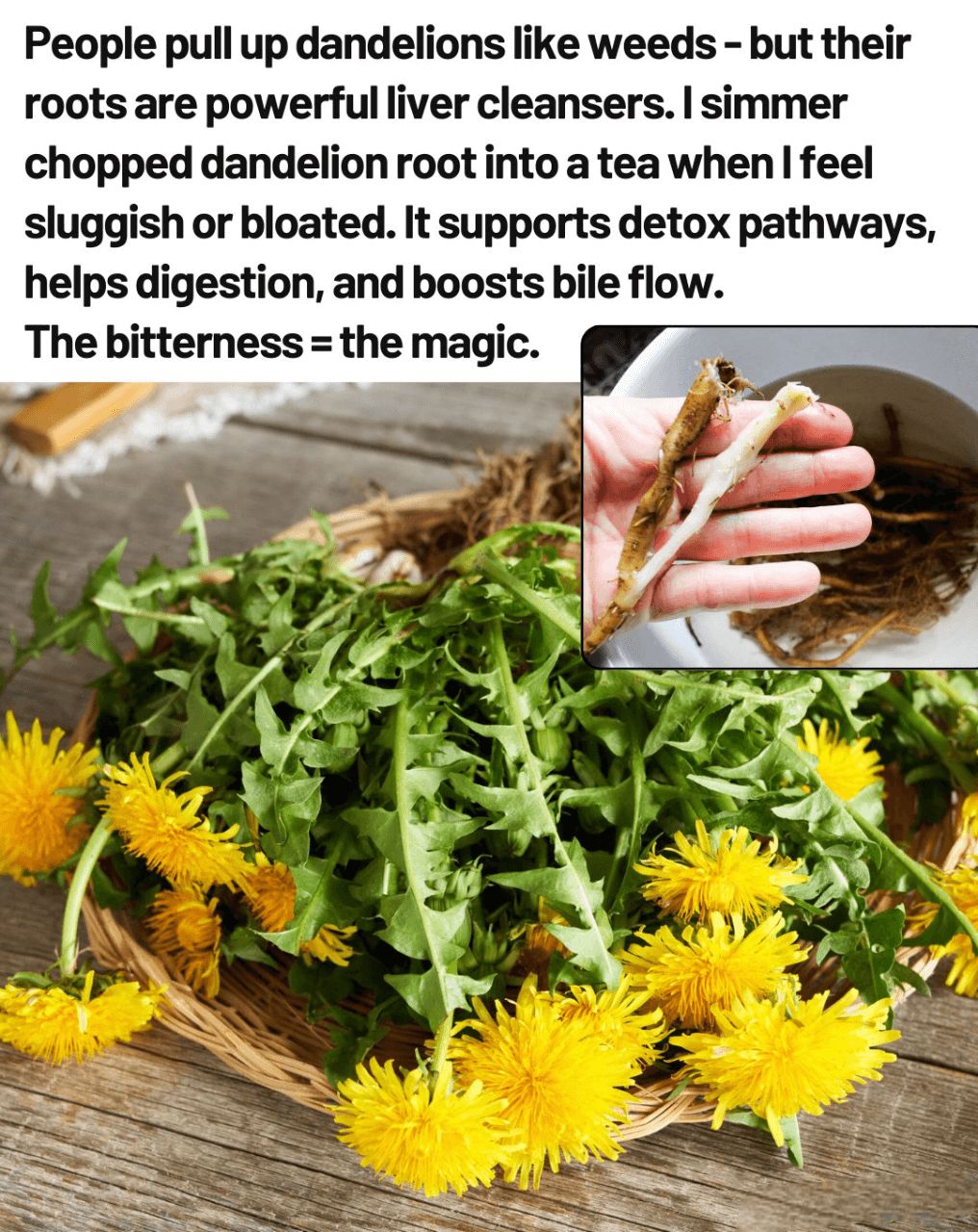For centuries, various cultures have relied on dandelion roots in traditional herbal medicine due to their wide range of health benefits—many of which modern science is now beginning to confirm. Though often dismissed as a mere weed, the common dandelion (Taraxacum officinale) is packed with nutritional value, healing properties, and ecological significance. While most attention goes to the bright yellow flowers or fluffy seed heads, the roots of the plant are arguably its most valuable asset. This article explores why dandelion roots deserve more recognition, highlighting their many benefits for human health, gardening, and the environment.
1. A Rich Source of Nutrients
Dandelion roots are nutrient-dense and have been central to herbal traditions for generations. These roots deliver key vitamins and minerals essential to overall health. They contain inulin—a prebiotic fiber that nurtures good gut bacteria—along with potassium, which aids heart and muscle function. The calcium in dandelion roots contributes to bone strength, while iron helps prevent anemia by enhancing red blood cell production. Vitamins A, C, and K further boost the immune system, support skin health, and regulate blood clotting. Consuming dandelion root in forms such as tea, powder, or tincture can be a powerful way to enrich your diet.
2. Natural Detox Support
Among the most recognized benefits of dandelion root is its ability to support detoxification. Traditionally valued for its liver-cleansing and diuretic effects, it helps flush toxins from the body and supports internal balance. Dandelion root encourages bile flow, improving digestion and enhancing the liver’s ability to process waste. It also supports kidney health by acting as a gentle diuretic, aiding in the removal of excess water and salt, which may help lower blood pressure and reduce bloating.
3. Aiding Digestion Naturally
Due to its high inulin content, dandelion root is excellent for digestive health. Inulin functions as a prebiotic, feeding the beneficial bacteria in the gut and fostering microbial balance. This helps ease constipation, promote regular bowel movements, and alleviate digestive discomfort. Drinking dandelion root tea can soothe issues like bloating or indigestion and is a gentle way to support your digestive tract.
4. Immune-Boosting Properties
Loaded with antioxidants, dandelion roots combat oxidative stress and support the immune system. These antioxidants include beta-carotene, which the body converts into vitamin A for healthy skin and vision, and polyphenols, which reduce inflammation and protect cellular health. Regular consumption of dandelion root can help the body fight off illness more effectively and maintain stronger defenses against disease.
5. Supporting Skin Health from Within
The cleansing properties of dandelion root also reflect in healthier skin. By promoting liver function and purifying the bloodstream, the root helps clear common skin conditions such as acne, eczema, and psoriasis. It can reduce inflammation that leads to skin irritation, eliminate toxins that trigger breakouts, and improve blood flow to nourish the skin more effectively.
6. An Earthy, Caffeine-Free Coffee Alternative
Dandelion root offers a surprising use as a substitute for coffee. When roasted, it develops a bold, earthy flavor similar to coffee but without caffeine’s jittery side effects. It’s ideal for those reducing caffeine intake. Additionally, while coffee may irritate some stomachs, dandelion root supports digestion. To make a dandelion “coffee,” simply roast the dried roots, grind them, and brew like traditional coffee grounds.
7. Enhancing Garden Health
Dandelion roots benefit more than just humans—they also enrich soil health and support garden ecosystems. Their long taproots help break up compacted soil, allowing better air and water flow. As they draw nutrients like iron and calcium from deep underground, these become available to other plants when the dandelion decomposes. Furthermore, dandelion flowers attract pollinators, which are vital for a flourishing garden. Allowing a few dandelions to grow can improve soil and support biodiversity.
8. Traditional and Contemporary Healing Uses
Used across many cultures, dandelion root has long played a role in natural medicine. In Traditional Chinese Medicine, it has been used to ease inflammation and support digestion and liver health. Native American traditions also relied on it for its diuretic effects and skin-soothing properties. Today, you can find dandelion root in various forms, including capsules, teas, tinctures, and powders. Its popularity continues to grow among those seeking natural ways to support wellness.
9. Harvesting and Preparing the Roots
Harvesting dandelion roots is simple and can be done with minimal equipment. The ideal times are early spring or late fall when the roots are richest in nutrients. Use a garden fork or shovel to gently extract the deep roots, then rinse them thoroughly. To prepare, slice and dry the roots in a dehydrator or a low oven. Roasting them at 350°F until golden makes them suitable for coffee-like drinks. You can also boil them to brew a detoxifying tea.
10. Considerations and Safety Tips
Though generally safe for most people, dandelion root may cause side effects in some. Allergic reactions are possible, especially for those sensitive to related plants. Because of its diuretic effects, consuming it in excess may increase urination. It may also interact with medications, such as diuretics, blood thinners, or those for diabetes and hypertension. Always consult a healthcare professional before adding dandelion root to your routine, particularly if pregnant, breastfeeding, or taking medications.
Dandelion roots offer far more than meets the eye. From nourishing the body to enriching the soil, they represent one of nature’s most versatile resources. Incorporating them into your health regimen or garden care routine is a step toward a more natural, balanced, and sustainable way of living.
